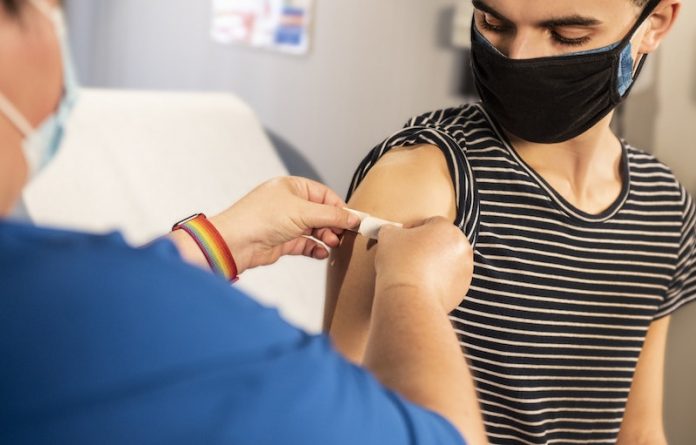
In a study from Cedars-Sinai, scientists found that COVID-19 vaccines do not raise stroke risk—but that severe COVID-19 infection does.
They found people are 200 times less likely to have had a stroke if they were vaccinated, than people who were hospitalized with severe COVID-19 and was not vaccinated.
That’s because COVID-19 infection, especially severe infection, can cause inflammation, clot formation and heart disease that increases stroke risk.
Stroke risk is especially great for those who are at risk of severe COVID-19, including those who have lung or cardiovascular disease, high blood pressure, high cholesterol, diabetes, a prior stroke, and people who are immunocompromised.
Even for those who aren’t infected with COVID-19, the pandemic has created conditions that can increase the risk of stroke.
Researchers offered the acronym BE FAST as an easy way to remember the signs of stroke: balance, eyes, face, arms, speech, and time. Loss of function in any of the first four areas are sign that there is no time to waste.
Call 911 so that you can be brought to a hospital that can treat stroke patients.
When the ambulance comes to pick you up, they can employ stabilizing measures and will coordinate getting you to the best facility for stroke care.
Meanwhile, as new variant-targeted COVID-19 vaccines and additional booster recommendations appear to be on the horizon this fall, the team advised following Centers for Disease Control and Prevention (CDC) guidelines as the best protection against both COVID-19 and stroke.
They urge everyone to protect themselves and others—especially the most vulnerable among us—by getting vaccinated and keeping up with boosters.
If you care about Covid, please read studies about the root causes of severe COVID-19, and new chewing gum could reduce COVID-19 transmission.
For more information about Covid, please see recent studies that shark stuff could fight COVID-19 virus, and results showing this common drug could almost halve COVID-19 death risk.
The study was conducted by Alexis Simpkins et al and published in Neurology.
Copyright © 2022 Knowridge Science Report. All rights reserved.



